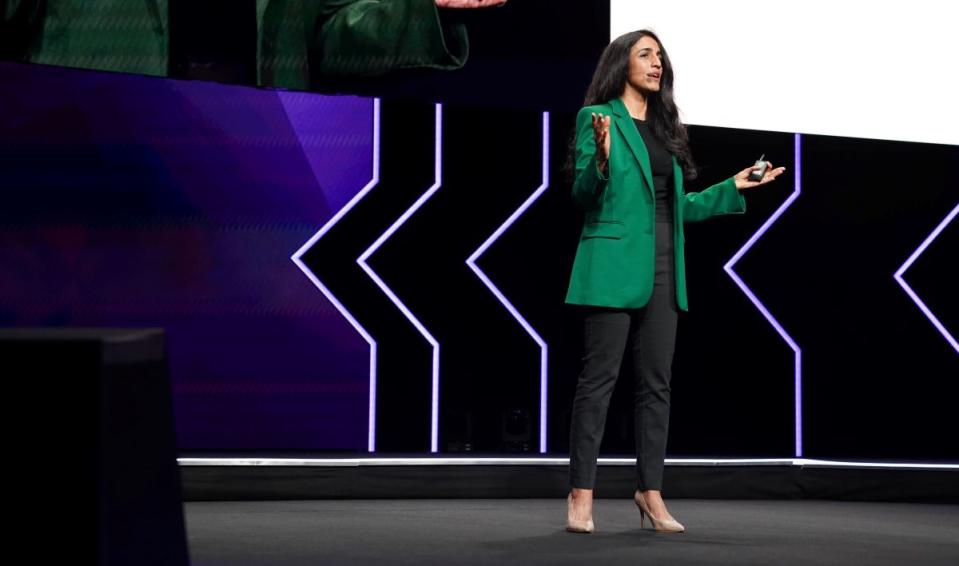Generative AI will restructure the operating system of the economy: Ayesha Khanna

But humans must keep an eye on the machine as AI can hallucinate, says Khanna at Nutanix's .NEXT event.
For years, we have been told that artificial intelligence (AI) can help improve productivity and enhance competitive advantage. Case in point: NotCo in Chile uses AI to recreate animal products from a library of more than 300,000 plant ingredients. Meanwhile, Rolls-Royce leverages AI for the predictive maintenance of its jet engines.
But what made the masses excited about AI recently is generative AI, thanks to the buzz brought about by OpenAI’s ChatGPT. “[With generative AI,] everyone can have a personal assistant… and it will also restructure the operating system of how the economy works,” says Dr Ayesha Khanna, co-founder and CEO of Addo, at Nutanix’s .NEXT event in Chicago yesterday.
International law firm Allen and Overy, for instance, is rolling out an AI chatbot called Harvey as a legal assistant to its 3,500 lawyers. “[Built using OpenAI’s GPT technology,] Harvey can do contract analysis, due diligence and present draft arguments for cases. [With this,] human lawyers can spend more time with clients, think of a strategy for criminal investigation or a tax structure change, etc, as they no longer need to [do the same thing day in and out, such as] going over similar legal documents again and again looking for errors,” she shares.
She also gave the example of the Khan Academy piloting the use of OpenAI’s GPT-4 for its AI interface called Khanmigo to enable the underserved to receive quality education. According to the Khan Academy’s blog, Khanmigo is “like a virtual Socrates, guiding students through their educational journey.” It engages students in back-and-forth conversation instead of giving answers. As such, it can help students get help with math, learn computer programming or prep for examinations, to name a few.
With more organisations adopting AI, Khanna believes it is high time to think about AI ethics and regulations. “Before we get too excited about AI, what I really need you to think is to not trust the machine so much. I’m an AI engineer, so I know we make mistakes and that the data [supporting the AI] can be faulty. So in this new hybrid man-machine economy, humans are necessary to keep an eye on the machine because AI can hallucinate or take your corporate secrets,” she asserts.
For the latter, she referred to the recent case of Samsung Electronic banning the internal use of generative AI tools after it was discovered that employees accidentally leaked sensitive data through ChatGPT.
“Humans need to govern AI and to benefit ourselves and humanity. In this new world, you are the hero of this story, not AI,” she says.
See Also:
Click here to stay updated with the Latest Business & Investment News in Singapore
AI drug discovery is a US$50 billion opportunity for big pharma
Chinese ChatGPT rival Mobvoi picks banks for US$300 million Hong Kong IPO, sources say
Get in-depth insights from our expert contributors, and dive into financial and economic trends

 Yahoo Finance
Yahoo Finance 